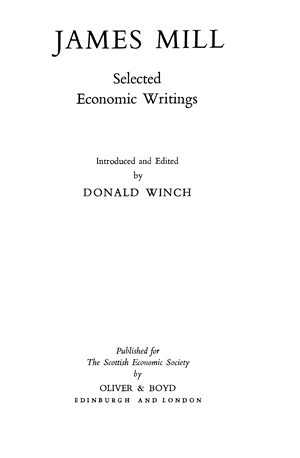
Selected Economic Writings (1966)
- James Mill (author)
- Donald Winch (editor)
A collection of Mill’s writings on economics, including his early essays on The Impolicy of a Bounty on the Exportation of Grain, Commerce Defended, and selections from his Elements of Political Economy and his History of British India.